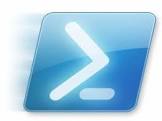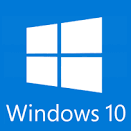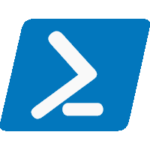Extending PowerShell with modules
With Microsoft adding PowerShell to Windows it opened many different possibilities for the scripter’s and IT Administrators managing hundreds and thousands of servers with automation from their desks. One of the problems with running PowerShell from the desk is that you need modules so you can write such great scripts. In this post I will list a few of the great resources to find the modules and in future posts plan to show scripts based on some of the modules.
Installing the Remote Server Administration Tools (RSAT) feature on Windows 7
In order to install the Active Directory Module for Windows PowerShell you need to download the RSAT tools for Windows 7 here. Once this is installed you are still not finished, you need to enable the Active Directory module. Navigate to Control Panel > Programs and Features > Turn Windows Features On or Off and select Active Directory Module for Windows PowerShell that you want to install.
Once you have Active Directory web services running on at least one domain controller and the AD PowerShell module is installed, you are ready to run the AD PowerShell module. You can do this in one of two ways. First, you can access the “Active Directory Module for Windows PowerShell” shortcut in Administrative Tools as shown here:
Right click the shortcut and select “Run as administrator” in order to start PowerShell with elevated permissions.
You can also simply import the AD PowerShell module in your existing PowerShell session. Just use the Import-Module ActiveDirectory command:
Import-Module ActiveDirectory
PowerShellPack Modules
http://archive.msdn.microsoft.com/PowerShellPack
Windows PowerShell Pack contains 10 modules to help supercharge your Windows PowerShell scripting. The PowerShellPack lets you write user interfaces in PowerShell script, manage RSS feeds, schedule operating system tasks, and much more. Download and install PowerShell pack to get started.
Run Import-Module PowerShellPack from within PowerShell.
* Note: The PowerShell Pack is no longer available for download. If you do find it and install it and are running PowerShell 4 you could break PowerShell. If you are still running PowerShell 2 then several of the scripts can be found here https://github.com/sushihangover/SushiHangover-PowerShell/tree/master/modules/TaskScheduler
Module Description
WPK – Create rich user interfaces quick and easily from Windows PowerShell. Think HTA, but easy. Over 600 scripts to help you build quick user interfaces
TaskScheduler – List scheduled tasks, create or delete tasks
FileSystem – Monitor files and folders, check for duplicate files, and check disk space
IsePack – Supercharge your scripting in the Integrated Scripting Environment with over 35 shortcuts
DotNet – Explore loaded types, find commands that can work with a type, and explore how you can use PowerShell, DotNet and COM together
PSImageTools – Convert, rotate, scale, and crop images and get image metadata
PSRSS – Harness the FeedStore from PowerShell
PSSystemTools – Get Operating System or Hardware Information
PSUserTools – Get the users on a system, check for elevation, and start-processaadministrator
PSCodeGen – Generates PowerShell scripts, C# code, and P/Invoke
MSDN Powershell Projects
There are many PowerShell projects with any imaginable PowerShell modules for download. Just visit the site at http://archive.msdn.microsoft.com/Project/ProjectDirectory.aspx?ProjectSearchText=Powershell and browse away.













OMG, the PowerShell Pack (and its download “PowerShellPack.msi”) is gone, together with http://archive.msdn.microsoft.com/PowerShellPack and I’ve been searching for *hours* to find not a single mirror for the file.. Impossible. 🙁
Ypu are correct the PowerShellPack is no longer available and from what I have found the scripts contaned in it do not work with PowerShell 4 and can possibly break it. What I was able to find was someone has is hosting several of the scripts from the pack here https://github.com/sushihangover/SushiHangover-PowerShell/tree/master/modules/TaskScheduler
I dont’t know why MS removed the PowerShellPack.MSI from their web site. However, I found a copy of the file on my hard drive You can download it here:
https://drive.google.com/file/d/0B70j7Xhv6elqenRTRWl0VUUyNDg/view?usp=sharing
Microsoft did not bother to sign the MSI install package. Use at your own risk.